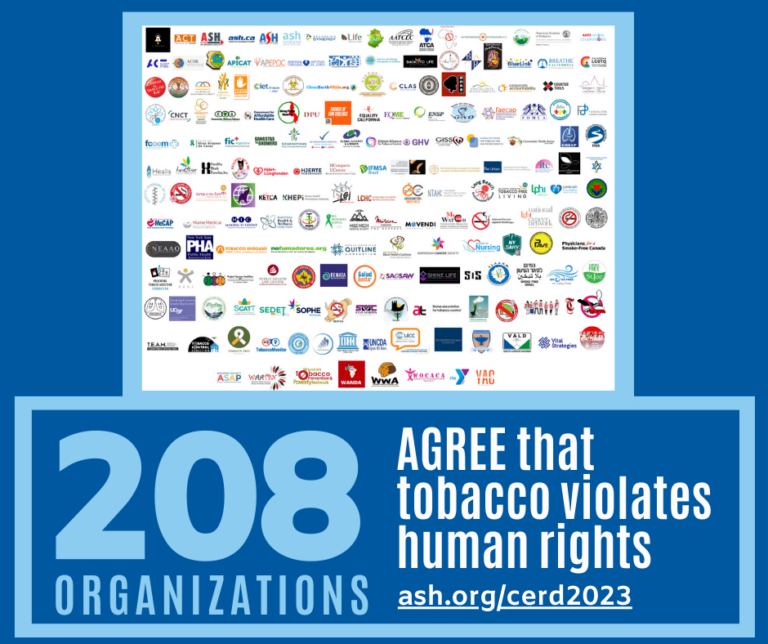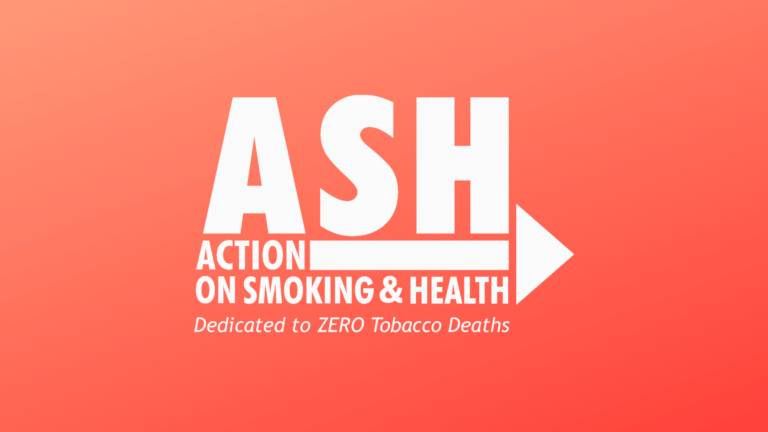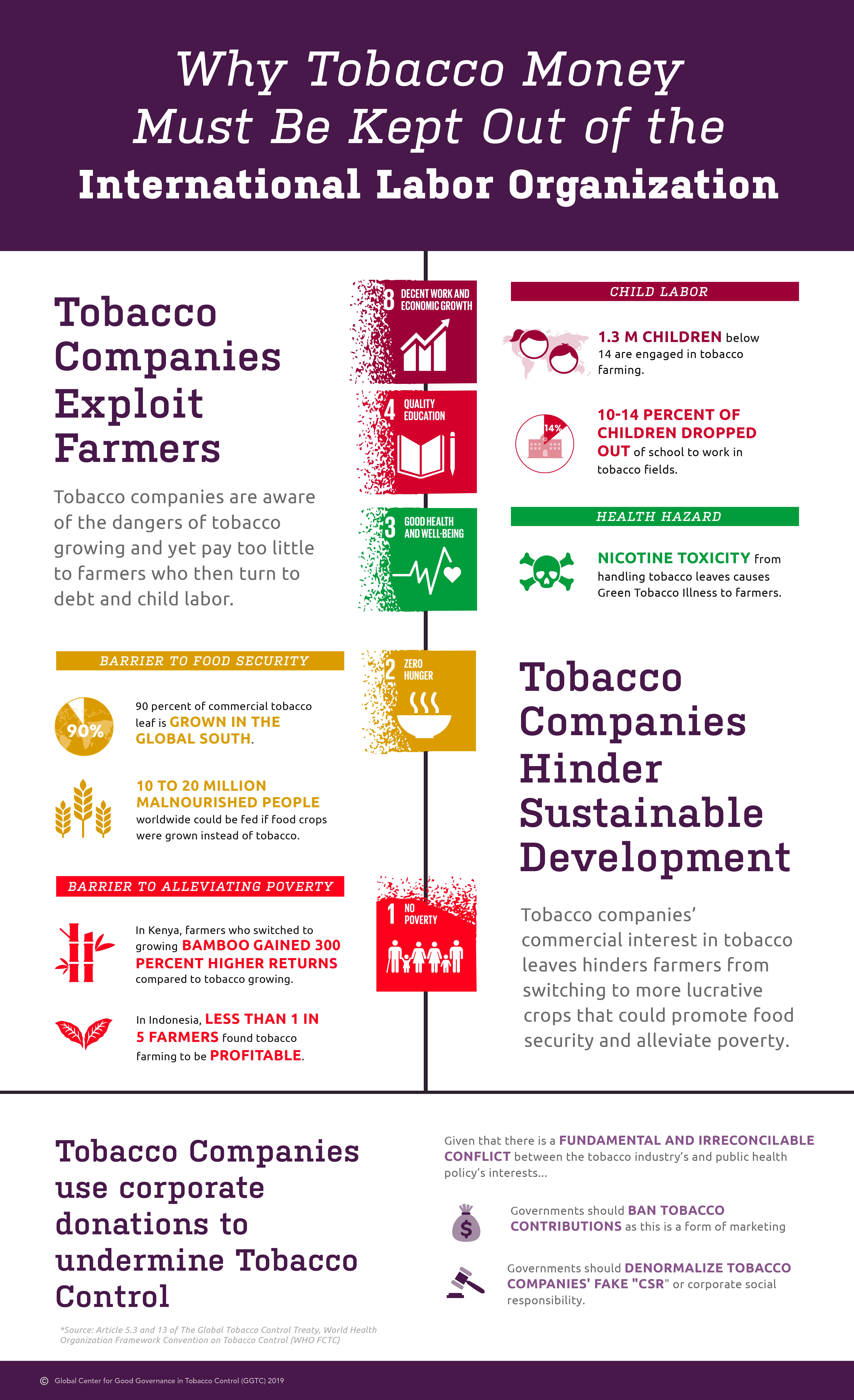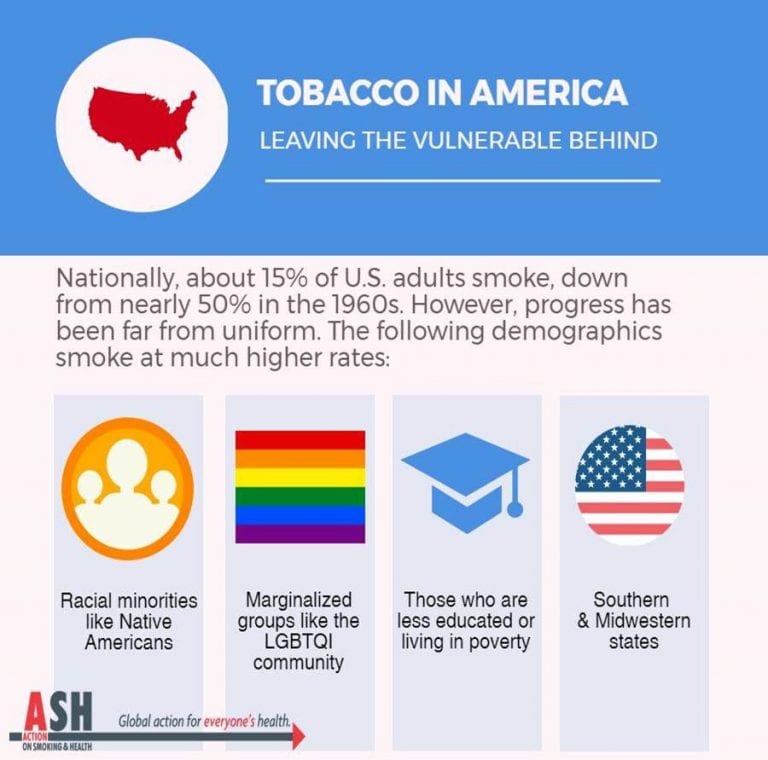
208 Organizations Unite to Call on UN Committee to Recommend Stronger Tobacco Control Policies
Media Contact: Megan Manning ManningM@ash.org (202) 390 – 9513 208 Organizations Unite to Call on UN Committee to Recommend Stronger Tobacco Control Policies The UN Committee on the Elimination of all forms of Racial Discrimination (CERD) is making recommendations on Racism and the Right to Health for its 182 party












